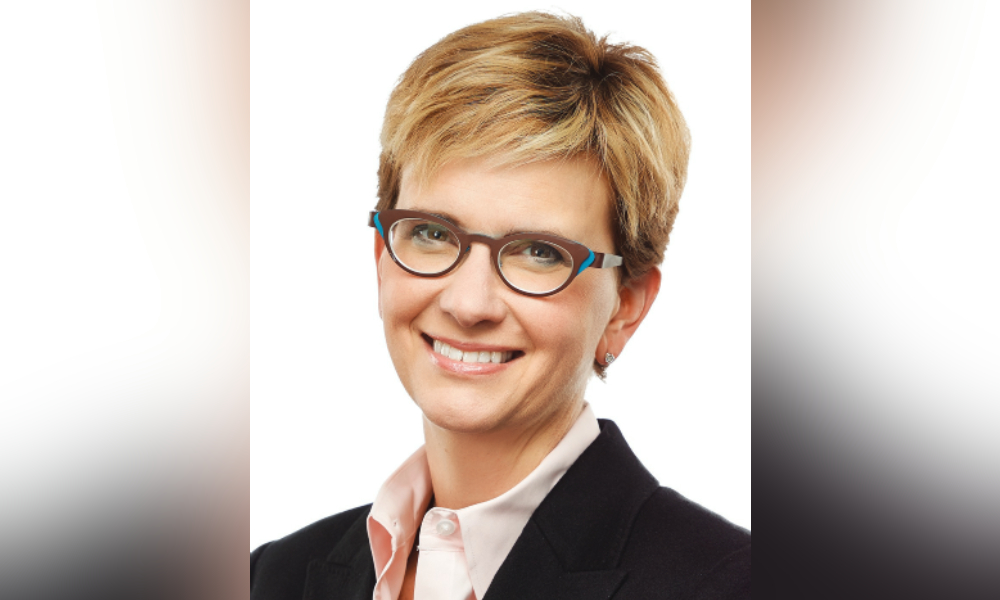COVID-19 fallout already resulting in claims against nursing homes, airlines, and for failed mergers

Disastrous events tend to breed litigation, which means the effects of the COVID-19 pandemic will be to increased litigation in 2021 and likely beyond, says Toronto litigator Linda Plumpton.
“My experience has been, in my practice, that significant global events are almost always followed by litigation, and I expect that COVID is no exception,” says Plumpton, who chairs Torys LLP’s Litigation and Dispute Resolution practice, and was recognized as the Canadian Law Awards Litigator of the Year for 2020.
Nominations are now open for next year’s awards. Open to all Canada-based law firms and legal departments, the nominees for Canadian Law Awards Litigator of the Year should be a Canada-based litigators and will be judged on the quantity, quality, importance and innovativeness of litigation work performed during calendar year 2020. Other litigation categories include Class Action Team of the Year, Commercial Litigation Team of the Year and Litigation & Dispute Resolution Boutique Law Firm of the Year.
“You look at the tech bubble bursting in the early 2000s, then the Great Recession in 2008,” Plumpton says. “I expect that the COVID trend will be similar, and we're already seeing that play out in a number of areas. My own view is that we're really just on the cusp of what will probably be years of litigation to follow.”
Litigation has already arisen from COVID-19-related deaths in nursing homes, aborted mergers — including that between Cineplex and Cineworld — and against airlines and ticketing agencies for refund claims; “and it’s the tip of the iceberg, I expect,” Plumpton told Canadian Lawyer.
Class action litigation
Litigation began last year in relation to claims of negligence against long-term care facilities in Canada, where residents have grown sick or died from the novel coronavirus. In Ontario, at least, a primary issue will be the scope and interpretation of the Bill 218 protections that limit the ability to assert COVID-related claims except in certain circumstances, says Plumpton. The bill bars COVID-19 exposure-related claims against any individual, corporation, or other entity that made a “good faith” or “honest” effort to act in accordance with public health guidance and laws related to the coronavirus.
Since Bill 218 — Supporting Ontario's Recovery and Municipal Elections Act, 2020 — was passed in November, those class actions against nursing homes have been “reframed” and based on gross negligence in order to meet the higher bar set by the new legislation, says Plumpton.
Recent amendments to the Class Proceedings Act in Ontario, which came into force in October as part of the federal Smarter and Stronger Justice Act, 2020, have created a number of new issues requiring interpretation. “The standard for certification, which has been quite low, … at least in Ontario, has been changed, and the bar has been raised,” says Plumpton.
“With the adoption of the predominance and superiority tests from the U.S., I expect we'll see a lot of litigation in the coming months and years, as we all try to understand how those changes are going to affect cases as they're being brought.”
In light of the end to waiver of tort and a rise in pandemic-related class actions, allegations of actual damages will be required in class actions, Plumpton wrote in a bulletin authored with other Torys lawyers on what to expect in class actions in Canada in 2021.
Competition litigation
The Supreme Court of Canada’s 2019 decision in Pioneer Corporation v. Godfrey “is a gamechanger,” she says. The court ruled that so-called umbrella purchasers in price-fixing cases, who have not bought products directly from co-conspirators but instead from other sellers, can nonetheless make claims for damages.
“We now have a substantial potential expansion of the numbers of people in the class,” Plumpton notes, and this “new development will change cases that are ongoing and into the foreseeable future in terms of their magnitude.” It is influencing new cases being brought, and existing cases have seen amendments to expand the classes, she says; where the battle will be waged is on the question of whether plaintiffs are able to offer proof in the form of expert economic evidence that those new members of the class have, in fact, suffered harm.
The Competition Bureau has indicated its focus in 2021 will be on ensuring that “digital giants” compete fairly and on safeguarding competition in the digital age, Plumpton wrote in a bulletin on competition litigation co-authored with James Gotowiec. Increased competition in telecommunications markets is anticipated, as well as enforcing the misleading advertising provisions of the Competition Act.
Director oversight claims
In March the Supreme Court ruled that a Canadian mining company, Nevsun Resources Ltd., which had operations in Eritrea, could be sued in Canada for alleged abuses of workers abroad.
“I think we will continue to see potentially novel litigation relating to responsibility for parent companies and board members in the oversight of foreign operations,” Plumpton says. “That’s been a development in the United States, and it will remain to be seen how it plays out in Canada.”
These types of claims, having to do with board oversight and director liability, are generally referred to as Caremark claims after the 1996 U.S. decision in re Caremark International Inc. Derivative Litigation, 698 A.2d 959, which dealt with a “board’s responsibility with respect to the organization and monitoring of the enterprise to assure that the corporation functions within the law to achieve its purposes,” the judge wrote in that case.
“There’s been some litigation in the U.S. that seems to show an expansion of the duties that might be owed,” Plumpton says. “That hasn’t been fully tested in Canada, [nor] the scope of responsibility that Canadian companies might have.”










